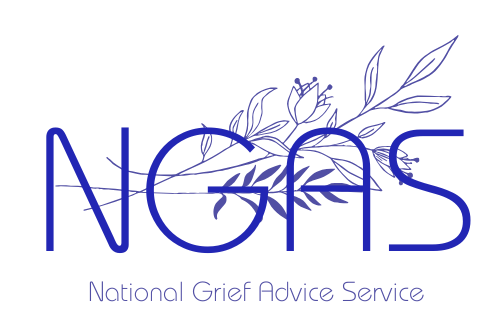What is Grief and levels of Grief?
Types of Grief:
Grief is a deeply personal experience, and people process loss in many different ways. While it is most commonly associated with the death of a loved one, grief can take many forms depending on the nature of the loss. Understanding these different types of grief can help individuals recognise their own emotions and seek appropriate support. The National Grief Advice Service is here to help those struggling with grief, offering guidance, resources, and support to navigate this difficult journey.
Anticipatory Grief
Anticipatory grief occurs when a person begins mourning a loss before it has actually happened. This often arises when a loved one has been diagnosed with a terminal illness or is experiencing a slow decline due to ageing or chronic disease. It can involve sadness, anxiety, and even guilt as individuals prepare for the inevitable loss.
Disenfranchised Grief
Disenfranchised grief happens when a person’s loss is not recognised or validated by society. This might occur in cases such as miscarriage, the death of a pet, the loss of an ex-partner, or even job loss. Since these types of grief are often minimised, those affected may struggle to find support or feel isolated in their mourning.
Collective Grief
Collective grief is experienced by a large group of people, often in response to a shared tragedy. This could include grief over natural disasters, terrorist attacks, pandemics, or the death of a public figure. The shared nature of collective grief can provide a sense of solidarity and communal support, but it can also bring feelings of helplessness and sadness on a large scale.
Traumatic Grief
Traumatic grief typically follows a sudden, unexpected, or violent death, such as in cases of accidents, suicide, homicide, or natural disasters. Because of the shock and distress surrounding the circumstances, traumatic grief can be more complex and may involve symptoms of post-traumatic stress disorder (PTSD), including flashbacks, heightened anxiety, and difficulty coping with the loss.
Ambiguous Grief
Ambiguous grief, or ambiguous loss, occurs when there is uncertainty or a lack of closure regarding a loss. This might happen when a loved one goes missing, is kidnapped, or when someone is physically present but psychologically absent, such as in cases of dementia, Alzheimer’s, or severe mental illness. This type of grief can be particularly difficult to process because there is no clear resolution.
Cumulative Grief
Cumulative grief happens when multiple losses occur in a short period, leaving a person with little time to grieve properly before facing another loss. This can be overwhelming and exhausting, making it difficult for someone to process each loss individually. Cumulative grief is common in situations like the death of multiple family members, repeated miscarriages, or large-scale tragedies affecting a community.
Pet Grief
The loss of a pet can be just as painful as losing a human loved one, yet society often downplays the significance of this grief. Pets are considered family members by many, and their loss can lead to deep sorrow. The grieving process for a pet may include feelings of loneliness, guilt, and even depression, particularly if the pet was a significant source of companionship or emotional support.
Secondary Grief
Secondary grief refers to the additional losses that come with a primary loss. For example, the death of a spouse may also bring financial difficulties, loss of identity, or changes in social circles. These secondary losses can make the grieving process even more complex, as they require a person to adjust to multiple changes at once.
Delayed Grief
Delayed grief occurs when a person does not fully process their loss at the time it happens, often due to circumstances that prevent them from grieving properly. This might occur if someone has to remain strong for others, is overwhelmed with responsibilities, or suppresses their emotions. Over time, the grief may resurface, sometimes unexpectedly, and can be just as intense as if it had just happened.
Support from the National Grief Advice Service
No matter what type of grief you are experiencing, the National Grief Advice Service is here to help. Grief can be overwhelming, isolating, and difficult to navigate, but support is available. Whether you need practical advice, emotional support, or someone to listen, our trained professionals can provide guidance tailored to your needs. You do not have to face grief alone—reach out to us for the support you deserve.
Grief After Suicide: Coping with a Unique and Painful Loss
Losing a loved one to suicide is a devastating experience that can leave family members and friends feeling overwhelmed by a complex mix of emotions. Unlike other forms of bereavement, grief after suicide is often accompanied by guilt, unanswered questions, and deep emotional pain. It is a journey that requires time, support, and self-compassion.
The Unique Nature of Suicide Grief
Grief after suicide differs from other types of loss due to the circumstances surrounding the death. The shock and trauma of losing someone in this way can have a profound effect on those left behind, often leading to feelings of guilt, shame, and even anger. Unlike a natural passing, suicide can leave survivors struggling with unanswerable questions and a deep sense of regret.
Some common emotions experienced include:
- Shock and disbelief – The sudden nature of suicide can make it difficult to accept the reality of the loss.
- Guilt and self-blame – Many survivors wonder if they could have done something to prevent the tragedy.
- Anger and resentment – Feelings of frustration towards the deceased or the circumstances leading to their decision.
- Shame and stigma – Suicide still carries a societal stigma, making it harder for families to grieve openly.
- Sadness and despair – The deep sorrow of losing someone in such a tragic way.
The Impact on Families and Friends
The aftermath of suicide can be particularly challenging for families and close friends. Relationships may be strained as each individual processes grief differently. Some may struggle to talk about the loss, while others might find comfort in sharing memories. Children, in particular, need special care and guidance in understanding what has happened.
Grief can also manifest physically, leading to exhaustion, headaches, or difficulty sleeping. It is crucial to acknowledge these symptoms and seek professional help when needed.
Coping Strategies for Suicide Grief
1. Allow Yourself to Feel – Suppressing emotions can prolong the grieving process. Acknowledging and expressing feelings can aid healing.
2. Seek Support – Talking to trusted friends, family, or professionals can provide comfort. Support groups specifically for suicide loss survivors can also be beneficial.
3. Challenge the Stigma – Suicide is often misunderstood, but education and open discussions can help break the silence and reduce feelings of shame.
4. Remember Your Loved One Positively – Celebrating their life rather than focusing solely on their death can bring comfort and healing.
5. Take Care of Yourself – Prioritising self-care, whether through rest, exercise, or hobbies, is essential in the grieving process.
6. Consider Professional Help – Counsellors and therapists trained in suicide grief can provide guidance and coping techniques tailored to your situation.
Finding Meaning After Loss
Although losing someone to suicide is incredibly painful, many survivors find ways to honour their loved one’s memory and help others in similar situations. Some become advocates for mental health awareness, while others support suicide prevention initiatives. Finding meaning in the loss can be a step towards healing.
The National Grief Advice Service provides support and resources to those affected by suicide loss. If you or someone you know is struggling, reaching out for help can make a significant difference. The service offers guidance, counselling, and practical advice to assist families and individuals coping with grief.
Grieving after suicide is a complex and deeply personal experience. There is no right or wrong way to grieve, and healing takes time. Remember, you are not alone, and support is available to help you navigate this difficult journey.
Anticipatory Grief: Navigating Loss Before It Happens
Grief is often associated with the death of a loved one, but for families and individuals facing a life-limiting diagnosis, grief can begin long before a person passes away. This type of grief, known as anticipatory grief, is the deep emotional pain that arises when we know that loss is inevitable. It affects not only the person who is ill but also their loved ones, shaping their emotional, psychological, and even physical well-being.
Understanding Anticipatory Grief
Anticipatory grief is the mourning that occurs before a loss happens. Unlike traditional grief, which follows a death, anticipatory grief encompasses a range of emotions that fluctuate as families witness their loved ones undergo changes in health, personality, and independence. This experience can be just as profound and challenging as grieving after a loss.
Some common emotions associated with anticipatory grief include:
- Sadness and despair – Knowing that time is limited can bring deep sorrow.
- Anxiety and fear – Uncertainty about the future, caregiving responsibilities, and the process of dying can be overwhelming.
- Anger and frustration – Feeling helpless or questioning why this is happening can be part of the journey.
- Guilt – Regret over past interactions or guilt for feeling emotionally drained.
- Hope and appreciation – Cherishing the remaining time and making meaningful memories can also be a part of this experience.
The Impact on Families and Relationships
Anticipatory grief can create both stress and closeness within families. Some relationships may strengthen as people come together to support their loved one, while others may experience tension due to differing ways of coping. Caregivers, in particular, may feel physically and emotionally exhausted, leading to burnout. Open communication and mutual support are crucial in maintaining healthy relationships during this time.
Coping Strategies for Anticipatory Grief
1. Acknowledge Your Emotions – It’s okay to feel a mixture of sadness, frustration, and even relief at times. Accepting these emotions can help process them more effectively.
2. Seek Support – Professional counselling, support groups, and talking to trusted friends or family members can provide comfort and guidance. The National Grief Advice Service can give help to both the family and the person diagnosed.
3. Create Meaningful Moments – Spending quality time, capturing memories, and engaging in meaningful conversations can bring a sense of closure.
4. Practise Self-Care – Caregivers and loved ones must also take care of themselves, whether through rest, hobbies, or seeking professional help when needed.
5. Prepare for the Future – Discussing final wishes, legal matters, and funeral planning can reduce stress when the time comes.
Finding Meaning Amid the Pain
Although anticipatory grief is painful, it also allows for a unique opportunity to say goodbye, express love, and cherish the remaining time together. For many, this period can lead to deeper connections, personal growth, and a renewed appreciation for life. By recognising and addressing anticipatory grief, families can navigate this challenging journey with compassion, support, and resilience.
If you or someone you know is struggling with anticipatory grief, seeking help from a counsellor or a support group can be beneficial. You are not alone, and support is available to help you through this difficult time.
Understanding Grief in Relationship breakdowns:
When people think of grief, they often associate it with death. However, grief extends far beyond losing a loved one to death—it can also stem from the loss of a significant relationship. Whether through a breakup, divorce, betrayal, or even emotional distancing, the pain of losing a deep connection can be just as profound as mourning someone who has passed away.
The Nature of Relationship Grief
Grief from a relationship is the emotional suffering experienced when a bond is broken. This grief can arise from various situations, including:
- A romantic breakup
- Divorce
- The end of a friendship
- Betrayal or loss of trust
- Emotional distancing in a long-term relationship
These losses often bring feelings of sadness, confusion, anger, and loneliness. Unlike death, where there is a societal structure for mourning, relationship grief can sometimes feel invisible or invalidated, making it harder to process.
The Stages of Grief in Relationship Loss
Much like the grief associated with death, relationship grief can follow the five stages outlined by psychiatrist Elisabeth Kübler-Ross:
1. Denial – Struggling to accept the loss, hoping for reconciliation or pretending it isn’t happening.
2. Anger – Feeling resentment towards the partner, oneself, or even external circumstances.
3. Bargaining – Attempting to negotiate or find ways to mend the relationship, often leading to self-doubt.
4. Depression – Experiencing deep sadness, isolation, or hopelessness over the end of the relationship.
5. Acceptance – Gradually coming to terms with the loss and beginning to heal.
Not everyone experiences these stages in order, and some may revisit certain emotions multiple times before truly moving forward.
Why Relationship Grief Hurts So Much
The pain of losing a relationship can be as devastating as death for several reasons:
- Loss of Identity: Relationships often shape our sense of self. When they end, it can feel like a part of us is missing.
- Unresolved Closure: Unlike death, which is final, relationships sometimes end without clear resolution, leaving unanswered questions and lingering emotions.
- Rejection and Self-Worth: A breakup can trigger deep insecurities and feelings of unworthiness, making the pain even harder to bear.
- Shared Memories and Future Plans: The loss is not just about the present—it’s also about mourning the future that was once envisioned together.
Coping with Relationship Grief
1. Acknowledge Your Pain: Suppressing emotions only prolongs healing. Allow yourself to grieve without guilt.
2. Seek Support: Talk to trusted friends, family, or even a therapist to process your feelings.
3. Practice Self-Care: Engage in activities that bring you joy and relaxation, such as exercise, hobbies, or meditation.
4. Establish Boundaries: If needed, limit contact with the person to give yourself space to heal.
5. Redefine Yourself: Focus on self-growth, rediscovering passions, and setting new personal goals.
6. Give It Time: Healing isn’t linear, and there is no set timeline for moving on.
Final Thoughts
Grief isn’t exclusive to death—it manifests in many forms, including the loss of relationships
Understanding Grief with Children:
Grief is a universal emotion, yet it can feel particularly complex and overwhelming when navigating it with children. When a loved one passes away or there is a significant loss, children may struggle to understand their emotions or express their feelings effectively. This can make the grieving process even more challenging for parents, carers, and those supporting the child. However, by approaching grief with empathy, patience, and clear communication, adults can guide children through their grief in a healthy and supportive manner.
Children's Understanding of Grief
Children’s comprehension of grief largely depends on their age and developmental stage. Younger children, for example, may not fully understand the permanence of death or loss. Instead, they may think of it as temporary and may repeatedly ask questions, hoping for reassurance that the person will return. As they get older, children can grasp the finality of loss but may still struggle with their emotions, often finding it difficult to articulate their sadness or confusion.
In general, younger children (under the age of six) may not have the vocabulary or cognitive tools to process complex emotions. They might show their grief through changes in behaviour, such as clinginess, regressive behaviours (like bedwetting or thumb-sucking), or even tantrums. It’s essential to remember that these reactions are a way for children to cope with feelings they don’t quite understand.
Older children and teenagers, on the other hand, may be more aware of what’s happening, but their emotional responses can still be unpredictable. They may exhibit feelings of anger, guilt, or sadness and might withdraw from others, express irritability, or even have trouble concentrating at school. Adolescents, in particular, might also experience a sense of confusion or insecurity about their future without the person who has passed away.
Open and Honest Communication
One of the most crucial aspects of supporting children through grief is maintaining open, honest communication. It is natural to want to protect children from the pain of loss, but shielding them from the truth can create more confusion and anxiety. Instead, provide age-appropriate information about what has happened, answering questions honestly while being mindful of their emotional capacity.
For younger children, simple explanations like “Grandma has died, and we won’t see her again” can be enough. They may have many questions, and while these may seem repetitive, it’s important to answer them each time with the same care. For older children, you may want to be more direct, addressing their emotions and offering them opportunities to express what they’re feeling.
Be prepared for a range of emotions. Grief doesn’t follow a set path, and children may show joy or relief at times, especially if they were closely involved in the care of the person who has passed away. These mixed emotions are normal, and it's essential to validate them rather than dismiss them.
Providing Emotional Support
Grief can be an isolating experience, and children may not always know how to express their feelings or may worry about burdening others. It’s essential to create an environment where they feel safe to talk, cry, or be silent if they prefer. Encouraging emotional expression through creative activities, such as drawing, writing, or playing, can help children process their grief in non-verbal ways.
Another way to provide support is by establishing a sense of routine. The stability of regular activities, like school, mealtimes, and bedtimes, can provide comfort during times of emotional upheaval. It’s also helpful to involve children in rituals or memorials for the person who has passed, such as lighting a candle, sharing stories, or even planting a tree. These actions help to honour the deceased while also giving the child a tangible way to process their loss.
Managing Your Own Grief
Supporting a grieving child can be emotionally exhausting, especially if you, too, are navigating your own sorrow. It is important to recognise that children are often sensitive to the emotions of those around them. If you are struggling with your grief, seek support from friends, family, or a professional counsellor. Modelling healthy emotional expression for children helps them understand that it is okay to feel sad or upset and that grief is a normal, albeit difficult, part of life.
Taking care of your own mental health allows you to be a more present and supportive figure for the child. Don’t be afraid to admit that you don’t have all the answers and that grief is a journey you’re all on together.
Seeking Professional Support
In some cases, children may require additional support to process their grief. If a child is showing signs of prolonged distress, such as withdrawal, ongoing behavioural changes, or an inability to function in daily life, it may be helpful to consult a therapist or grief counsellor. Therapy provides children with a safe space to explore their feelings with a professional who can guide them through the difficult emotions they may be experiencing.
Additionally, support groups for children or families who have experienced a loss can offer comfort and understanding. It can be reassuring for children to realise that they are not alone in their grief, and hearing how others have navigated their own feelings can provide hope and perspective.
Conclusion
Grieving with children requires sensitivity, patience, and understanding. Every child’s experience of grief is unique, and it’s essential to tailor your approach based on their age, temperament, and understanding of the loss. By fostering open communication, providing emotional support, and modelling healthy ways to grieve, adults can help children navigate their sorrow in a way that promotes healing and resilience. Remember that grief is not a linear process, and it’s okay to seek help along the way, for both the child and the adult.
Coping with the Grief of Losing a Family Pet
Losing a family pet is a heart-breaking experience. Pets are more than just animals; they become cherished companions, offering unconditional love and companionship. Their loss can leave an emotional void that is difficult to fill. Grieving for a pet is a natural and personal process, and it is important to acknowledge and express these emotions.
Why Losing a Pet Hurts So Much?
Pets play an integral role in our lives. They provide comfort, companionship, and even a sense of purpose. Their presence becomes part of our daily routine, and their loss can be deeply felt. The grief experienced after losing a pet is similar to losing a close friend or family member. However, because pet loss is not always widely recognized by society, some people may feel isolated in their sorrow.
It is essential to understand that the pain of losing a pet is real and valid. Seeking support and allowing oneself to grieve are important steps toward healing.
The Stages of Grief After Losing a Pet
Grief does not follow a strict pattern, but many people experience similar emotions, which may include:
1. Denial – It may be difficult to accept that a beloved pet is truly gone. Some may still expect to hear their pet’s footsteps or see them in their usual spot.
2. Anger – Feelings of frustration and sadness may arise, sometimes directed at the situation, the veterinarian, or even oneself.
3. Bargaining – Many people find themselves wondering if they could have done something differently to prevent their pet’s passing.
4. Depression – The reality of the loss sets in, bringing feelings of sadness, loneliness, and sometimes guilt.
5. Acceptance – While the pain does not disappear, acceptance allows a person to remember their pet with love rather than sorrow.
Ways to Cope with the Loss of a Pet
Grieving is a personal process, and everyone copes differently. However, some strategies can help ease the pain:
- Allow Yourself to Grieve – It is normal to feel deep sorrow after losing a pet. Give yourself permission to mourn.
- Talk About Your Feelings – Sharing your emotions with family, friends, or support groups can provide comfort. The National Grief Advice Service offers support and guidance for those struggling with loss, including pet bereavement.
- Create a Memorial – Honouring your pet’s memory can bring a sense of closure. This may include planting a tree, creating a scrapbook, or keeping a meaningful keepsake.
- Maintain Routines – The absence of a pet can disrupt daily life. Establishing new routines can help ease the transition.
- Seek Professional Support – If grief becomes overwhelming, speaking to a counsellor or a pet loss support group can be beneficial.
Considering a New Pet
The decision to bring a new pet into your life is personal. Some people feel ready soon after a loss, while others need more time. A new pet should not be seen as a replacement but rather as a new companion with its own unique bond. When the time feels right, opening your heart to another pet can bring joy once again.
Final Thoughts
Losing a pet is a profound loss, but the love and memories remain forever. Grieving is a natural part of the process, and there is no right or wrong way to heal. Support is available, whether through friends, family, or services like the National Grief Advice Service. If you are struggling with the loss of a pet, know that you are not alone—your grief is valid, and healing will come in time.
The love shared with a pet is a special and irreplaceable gift. Though they may no longer be physically present, their memory and impact on your life will always remain.
Working in partnership with:

All Rights Reserved | National Grief Advice Service
Registered Charity Number 1211283
Website designed and maintained by myEPIC (part of Trill Marketing Ltd)




















